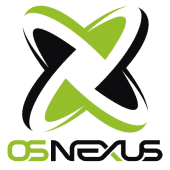Software Defined Storage (SDS) Solutions

Top Rated Products
(1-1 of 1)
All Products
(26-48 of 48)
Explore recently added products
Learn More About Software Defined Storage (SDS) Solutions
What are Software Defined Storage (SDS) Solutions?
Software-defined-storage (SDS) solutions are alternative data storage programs where the storage resources are decoupled from the underlying physical hardware. This makes them more flexible than traditional storage area network (SAN) or network-attached storage (NAS) programs that are attached to the hardware. SDS programs typically run on either the server operating system (OS) or virtual machines (VM). But certain programs may run on a hypervisor kernel which allows for multiple VMs to be used simultaneously on one device.
These programs are also related to software-defined networking (SDN) and the software-defined data center (SDDC) architecture. These products reflect a broader industry-wide shift towards the virtualization of software-related functions such as storage, networking, and security.
SDS solutions have become very popular for recently for a few key reasons including:
- the evolving and increasingly unstructured nature of data
- increasing customer need for data virtualization capabilities
- rising demand for cloud storage technologies
Common SDS use cases include:
- DevOps
- Workflow automation
- Virtualized desktop infrastructure (VDI)
- Data security and protection
- Data management of integrated public and private cloud systems
- Providing better data access for remote offices
- Increasing data storage efficiency by eliminating silos
- Extending the life of more traditional storage systems
‘Scaling Out’ vs. ‘Scaling Up’ Storage Capacities
‘Scaling-out’ is an alternative to the more traditional 'scaling-up' method of increasing storage capacity. It involves adding additional storage space with SDS products that do not need to be physically attached to the hardware underneath.
Scaling-up storage involves adding more physical storage - such as disk drivers - to the original storage infrastructure to increase capacity. One drawback of scaling-up storage is that there is a limited amount of upgrading that can be done. In comparison, when scaling-out storage, there is essentially no limit to the amount of storage resources that can be added.
SDS Solutions Features and Capabilities
Most SDS products include a number of features and capabilities targeting storage management and functionality such as:
- Abstraction of storage resources from the underlying hardware
- Virtualization of pooled storage resources
- Ability to manage pooled storage via one administrative interface
- Policy-based management of storage resources
- Ability to increase storage capacity through scaling-out the system across a server cluster
- Compatibility with industry-standard hardware (x86 servers and API)
- Access to different types of storage interfaces such as block, file, and object storage
However, there are a multiple storage options to consider when selecting an SDS product. These include different scale-out and/or block, file, and object options, container-based software, virtualized software, and hyper-converged infrastructure (HCI) software.
Benefits of SDS
There are several benefits of using an SDS solution compared with traditional SAN or NAS style storage. Most importantly, they allow the user to update storage capacity while not altering the underlying physical hardware. They also enable the expansion of existing storage capacity to a virtually unlimited degree.
SDS products also offer cost related benefits which include:
- lower upfront and operational costs
- buyers avoid being ‘locked in’ to one software vendor (since they not tied to any specific hardware)
- eliminate costs by ‘scaling out’ current storage capacity and adding on additional storage resources as needed
Pricing
The standard pricing model for storage software has been per GB, along with installment and upgrading costs. However, SDS vendors offer products whose prices are more dependent on use case, length of use, and amount of storage needed. Therefore prices may not be very standardized.
Vendors typically do not disclose price information on their website but provide it upon request.





















